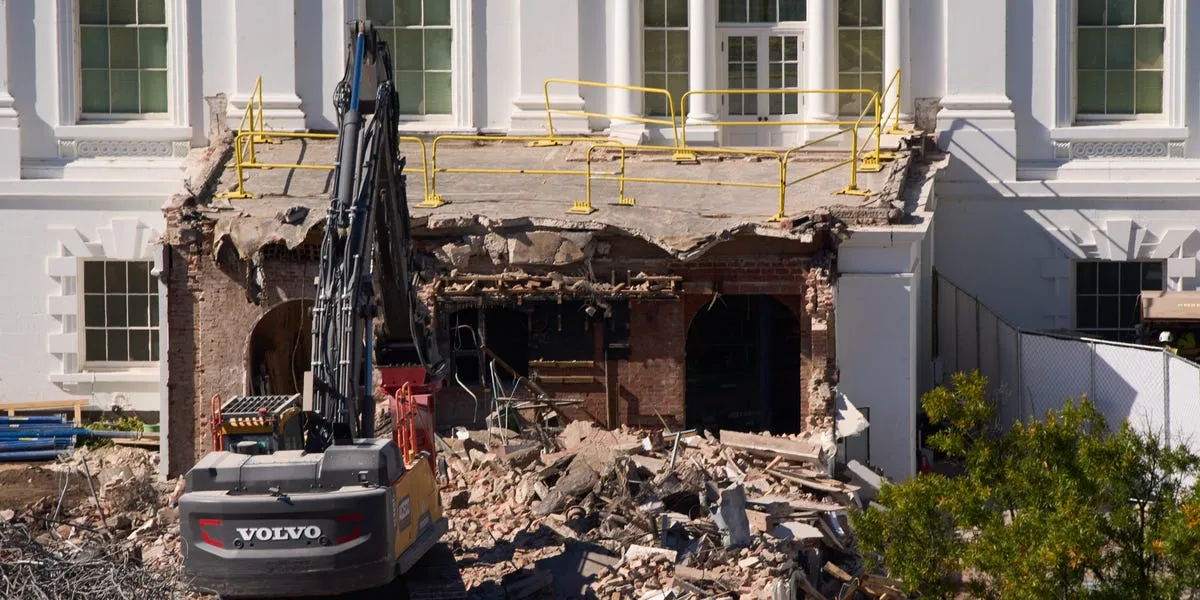
The recent demolition in the East Wing of the White House has sparked significant controversy, serving as a potent metaphor for the erosion of public trust, according to Mississippi Rep. Bennie G. Thompson. On Monday, construction crews began tearing down parts of the East Wing to pave the way for President Donald Trump's ambitious new 90,000 square-foot ballroom. This extravagant project is estimated to cost over $300 million, which is set to be funded through corporate donations.
Rep. Thompson is now calling for transparency and accountability from over 20 corporations that have pledged financial support for the project. In a letter sent to Amazon CEO Andy Jassy and other corporate leaders, he expressed concerns about the lack of honesty regarding the construction plans and associated costs. "Today, there is a gaping hole in the side of the White House, and no one in the White House has been honest with Americans about the construction plans or the costs," Thompson remarked.
Thompson raised alarms that the Trump administration may have bypassed the National Historic Preservation Act of 1966. Typically, presidents seeking to renovate the White House submit their plans to a commission and hold public forums for historians and citizens to discuss the project. "That obviously did not occur before demolition started," he noted in his correspondence.
The lawmaker has given the corporations until November 7 to provide detailed information regarding their donations, including any promises made in exchange for financial support. He added, "I'm thinking that a lot of the information we are asking for, they would've asked the same questions before they agreed to give the money," highlighting the importance of corporate accountability in public projects.
This week, the White House released a list of corporate donors contributing to the ballroom project. Notable companies on this list include Amazon, Apple, Google, Coinbase, Lockheed Martin, and Microsoft. Some of these corporations have also contributed to Trump's 2024 inauguration fund, with Meta and Amazon each donating $1 million. Additionally, Alphabet, the parent company of YouTube, reportedly contributed over $20 million to the ballroom project as part of a legal settlement after suspending Trump's account.
Initially, Trump assured the public that the ballroom project would not impact the current structure, claiming it would "be near it, but not touching it." However, just two days before the demolition began, Trump revised the project's cost estimate to $300 million, up from a prior estimate of $200 million.
As of now, Thompson's office has not received any responses to his inquiries but anticipates replies in the coming week. He emphasized the importance of transparency, stating, "I know of no other symbol of this great democracy than the White House, so if you are putting money into any kind of project toward that symbol, then the process has to be public."
As the situation continues to unfold, the implications of this construction project extend beyond mere aesthetics, touching on core issues of democracy, transparency, and public trust in government. The ongoing dialogue concerning corporate influence in political projects remains vital as the nation watches closely.